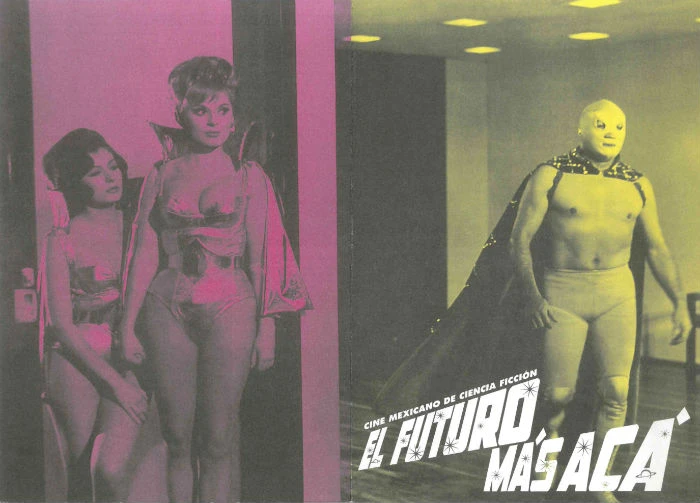
Held on 02 may 2005
El futuro más acá is a film series that brings together a selection of Mexican films that between 1945 and 1980 explored science fiction themes from a point of view very different from that of the discourse dominating the genre in the United States.
In the second half of the 20th century, Hollywood produced hundreds of science fiction films in which the hero, the personification of the establishment, fought for the good of society and along the way reinforced the idea of progress, the wonders of technology and paranoia of people from different places. This trend had a very special impact on Mexican cinematography, but instead of replicating the same old story time after time, this type of cinema made use of three three elements – fighters, comedians and lovely ladies – to reinvent the genre.
Not so much an expression of real interest in possible future worlds, these directors found in science fiction a way to recontextualise classic scenarios, a pretext for putting their favourite characters into action in a whole new setting. Mexico used a tone very different from the solemnity of Hollywood’s male conquerors, since in its films it is fun-loving women who arrive from another galaxy, as in Planet of the Female Invaders, by Alfredo B. Cervenna (1965), or a troupe of sexy intruders searching among the local rancheros for a stud who can perform the tasks necessary for reproduction, as occurs in Ship of Monsters, by Rogelio A. González (1959). These works can be considered something of an ‘accidental’ satire of Hollywood’s claims to be the representative of humanity. Creations such as these form the basis of the film series El Futuro más Acá, First Festival of Mexican Science Fiction Film, which was screened for the first time in November of 2003, in Mexico City.
The event at Museo Reina Sofía includes a total of six films and two round tables including both Mexican and Spanish speakers, offering a forum for discussion about this cinema and its particular vision of the future.
Organised by
Museo Reina Sofía
Más actividades
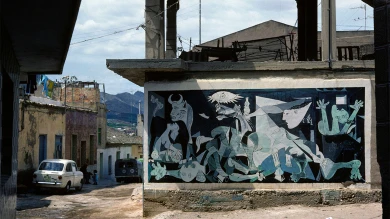
Rethinking Guernica
Monday and Sunday - Check times
This guided tour activates the microsite Rethinking Guernica, a research project developed by the Museo Reina Sofía’s Collections Area, Conservation and Restoration Department and the Digital Projects Area of the Editorial Activities Department, assembling around 2,000 documents, interviews and counter-archives related to Pablo Picasso’s painting Guernica (1937).
The visit sets out an in-situ dialogue between the works hung around the painting and a selection of key documents, selected by the Museo’s Education Team and essential to gaining an idea of the picture’s historical background. Therefore, the tour looks to contribute to activating critical thought around this iconic and perpetually represented work and seeks to foster an approach which refreshes our gaze before the painting, thereby establishing a link with the present. Essentially revisiting to rethink Guernica.
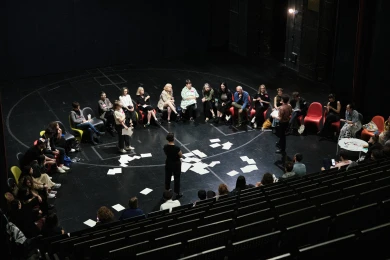
UP/ROOTING
11, 12, 13, 14, 15, 16 NOV 2025
Museo Reina Sofía and MACBA Museu d'Art Contemporani de Barcelona (MACBA) invite applications for the 2025 iteration of the School of Common Knowledge, which will take place from November 11th to 16th in Madrid and Barcelona.
The School of Common Knowledge (SCK) draws on the network, knowledge and experience of L’Internationale, a confederation of museums, art organizations and universities that strives to reimagine and practice internationalism, solidarity and communality within the cultural field. This year, the SCK program focuses on the contested and dynamic notions of rooting and uprooting in the framework of present —colonial, migrant, situated, and ecological— complexities.
Building on the legacy of the Glossary of Common Knowledge and the current European program Museum of the Commons, the SCK invites participants to reflect on the power of language to shape our understanding of art and society through a co-learning methodology. Its ambition is to be both nomadic and situated, looking at specific cultural and geopolitical situations while exploring their relations and interdependencies with the rest of the world.
In the current context fraught with war and genocide, the criminalization of migration and hyper-identitarianism, concepts such as un/belonging become unstable and in need of collective rethinking:
How can we reframe the sense and practice of belonging away from reductive nationalist paradigms or the violence of displacement? How to critically hold the entanglement of the colonial routes and the cultural roots we are part of? What do we do with the toxic legacies we inherit? And with the emancipatory genealogies and practices that we choose to align with? Can a renewed practice of belonging and coalition-making through affinity be part of a process of dis/identification? What geographies —cultural, artistic, political— do these practices of de/centering, up/rooting, un/belonging and dis/alignment designate?
Departing from these questions, the program consists of a series of visits to situated initiatives (including Museo Situado, Paisanaje and MACBA's Kitchen, to name a few), engagements with the exhibitions and projects on view (Project a Black Planet: The Art and Culture from Panafrica), a keynote lecture by Stefano Harney and Fred Moten, as well as daily reading and discussion gatherings, editorial harvest sessions, and conviviality moments.
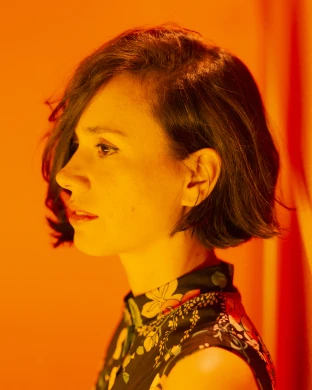
Ylia and Marta Pang
Thursday, 6 November - 8pm
The encounter between Spanish DJ and producer Ylia and visual artist Marta Pang is presented in the form of a premiere in the Museo Reina Sofía. Both artists converge from divergent trajectories to give form to a new project conceived specifically for this series, which aims to create new stage projects by setting out from the friction between artists and dialogue between disciplines.
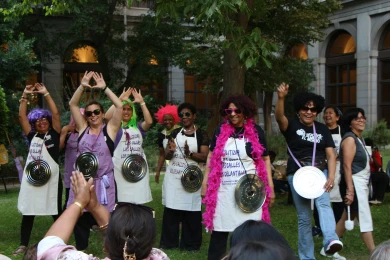
Situated Voices 36
Thursday, 16 October 2025 – 7pm
Territorio Doméstico is a feminist collective made up of female domestic and care workers who live in the Community of Madrid. They form a cross-border space which responds to a number of urgent problems: defending labour rights for female domestic workers and demanding the regularisation of migrant workers, as well as the right to family reunification, social recognition and the reparation of care debt by institutions.
The collective will provide accompaniment in this encounter by putting forward a cross-sectional round-table discussion centred on professional illnesses suffered by specific collectives of women doing jobs that are predominantly physical, such as care and domestic work and farm work. The aim is to shine a light on the physical and psychological tolls these body-oriented jobs take on the people that do them, in addition to the scant social, legal and healthcare recognition they receive.
Professional illnesses for women are often not recognised as such and are diagnosed simply as common illnesses, and with everything that entails on a legal and administrative level. Furthermore, obtaining sick leave can often become a huge struggle, thereby breaching labour rights.
The Museo Situado assembly convenes to discuss this reality, granting it the space it deserves to collectively call for solutions which respect the rights of all female worker.
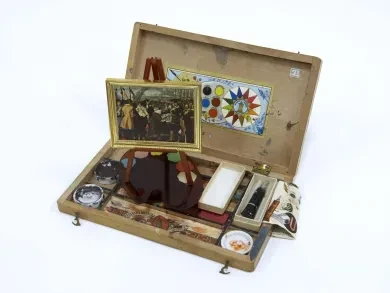
Sven Lütticken
Friday, 10 October 2025 – 7pm
Academic disciplines are, effectively, disciplinary — they impose habits of thought, ideological parameters and, a priori, methodological parameters on those who have studied them. Yet what does being disciplined by art history mean? What has art history done to us? Further, what can we continue to do with it? The Juan Antonio Ramírez Chair, an annual programme organised by the Museo Reina Sofía which is devoted to reflecting on art history and historiography, and their limits and vanishing points, invites Sven Lütticken to explore these questions in light of different cases chosen by Lütticken and related to his own practice.
His work, framed inside art history and theory, has constantly championed expanding, interrogating and questioning the limits of discipline until it becomes theoretical and (self)critical. Throughout his trajectory, Lütticken has aligned his interest primarily towards historical, critical and theoretical research around autonomy. An important landmark in this working strand is his participation in the The Autonomy Project, an initiative from the Van Abbemuseum in Eindhoven with different art schools and university departments and resulting in the published volume Art and Autonomy (Afterall, 2022). A second strand is made up of the long-term project Forms of Abstraction, which analyses contemporary artistic practices as interventions in forms of “real abstraction”, such as value-form, precisely as Marx theorised it.
Sven Lütticken will be a resident on Studies Constellation, the Museo Reina Sofía’s annual fellowship programme, and will work on the research project Unacting Personhood, Deforming Legal Abstraction.
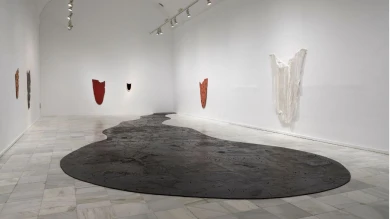
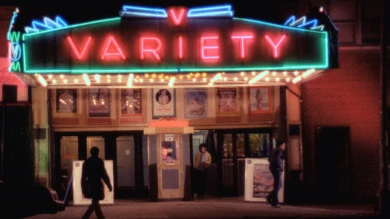
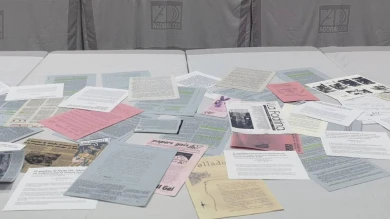
![Miguel Brieva, ilustración de la novela infantil Manuela y los Cakirukos (Reservoir Books, 2022) [izquierda] y Cibeles no conduzcas, 2023 [derecha]. Cortesía del artista](https://recursos.museoreinasofia.es/styles/small_landscape/public/Actividades/ecologias_del_deseo_utopico.jpg.webp)
![Ángel Alonso, Charbon [Carbón], 1964. Museo Reina Sofía](https://recursos.museoreinasofia.es/styles/small_landscape/public/Actividades/perspectivas_ecoambientales.jpg.webp)